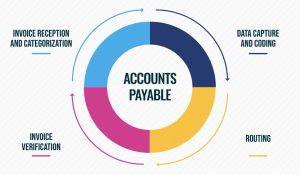The Compass for Your Financial Journey: The Power of Accounting Advice
In today’s dynamic business landscape, navigating financial complexities can feel like charting a course through uncharted waters. For businesses of all sizes, from fledgling startups to established enterprises, sound financial management isn’t just an advantage—it’s a necessity for survival and growth. This is where professional accounting advice steps in, acting as the compass that guides your financial journey, ensuring you stay on track, avoid pitfalls, and ultimately reach your destination of success.
Accounting advice is more than just number-crunching; it’s a strategic partnership that empowers businesses to make informed decisions, optimize operations, and maintain financial health. It encompasses a broad spectrum of services designed to address the multifaceted challenges businesses face in managing their finances, ensuring compliance, and planning for the future.
Beyond the Basics: What Does Accounting Advice Entail?
While core accounting functions like bookkeeping and tax preparation are fundamental, professional accounting advice delves much deeper. It offers insights and guidance across critical areas, including:
- Strategic Financial Planning: This involves working with businesses to set financial goals, develop budgets, forecast revenue and expenses, and create long-term financial strategies that align with overall business objectives. This proactive approach helps businesses anticipate future needs and allocate resources effectively.
- Tax Optimization and Compliance: The world of taxation is constantly evolving and can be a labyrinth for the uninitiated. Accounting advisors help businesses understand their tax obligations, identify potential deductions and credits, and develop strategies to minimize tax liabilities legally and ethically. They ensure compliance with all relevant tax laws, mitigating the risk of penalties and audits.
- Cash Flow Management: Cash flow is the lifeblood of any business. Expert advice in this area helps businesses monitor and manage their incoming and outgoing cash, identify potential shortages, and implement strategies to improve liquidity. This can involve optimizing accounts receivable and payable, managing inventory, and securing appropriate financing.
- Financial Reporting and Analysis: Beyond simply generating financial statements, accounting advisors provide in-depth analysis of these reports. They translate complex financial data into actionable insights, helping business owners understand key performance indicators (KPIs), identify trends, and make data-driven decisions to improve profitability and efficiency.
- Business Structure and Formation: For new businesses, choosing the right legal and financial structure is crucial. Accounting advice can guide entrepreneurs through the process of selecting the most suitable entity (e.g., sole proprietorship, partnership, LLC, corporation) based on their specific needs, tax implications, and liability considerations.
- Internal Controls and Risk Management: Establishing robust internal controls is vital for safeguarding assets, preventing fraud, and ensuring the accuracy of financial records. Accounting advisors can help design and implement these controls, identify potential financial risks, and develop strategies to mitigate them.
- Succession Planning and Exit Strategies: For established businesses, planning for the future, whether it’s transitioning ownership or selling the business, requires careful financial consideration. Accounting advice can assist in valuing the business, structuring deals, and minimizing tax implications during these critical transitions.
- Adoption of Technology and Automation: In an increasingly digital world, accounting advice also extends to guiding businesses in adopting modern accounting software and automation tools. This can streamline processes, improve accuracy, and free up valuable time for strategic initiatives.
The Undeniable Value Proposition
Engaging professional accounting advice offers a multitude of benefits that can significantly impact a business’s bottom line and long-term viability:
- Reduced Financial Risk: By identifying potential pitfalls and ensuring compliance, advisors help businesses avoid costly mistakes, penalties, and legal issues.
- Improved Profitability: Through strategic planning, cost optimization, and insightful financial analysis, businesses can identify opportunities to increase revenue and reduce expenses.
- Enhanced Decision-Making: Access to clear, accurate, and insightful financial data empowers business owners to make more informed and strategic decisions.
- Increased Efficiency: Streamlined processes, better organization, and the adoption of technology lead to greater operational efficiency.
- Time Savings: Outsourcing complex financial tasks frees up valuable time for business owners to focus on their core competencies and growth initiatives.
- Peace of Mind: Knowing that your financial matters are in expert hands provides invaluable peace of mind, allowing you to focus on what you do best.
- Strategic Growth: With a solid financial foundation and clear financial roadmap, businesses are better positioned for sustainable growth and expansion.
Choosing Your Financial Navigator
When seeking accounting advice, it’s crucial to choose a firm or individual who not only possesses the technical expertise but also understands your specific industry and business goals. Look for:
- Relevant Experience: Prior experience with businesses similar to yours can provide valuable insights.
- Strong Communication Skills: Your advisor should be able to explain complex financial concepts clearly and concisely.
- Proactive Approach: Look for someone who is not just reactive but proactively identifies opportunities and challenges.
- Technological Proficiency: An understanding of modern accounting software and tools is increasingly important.
- Reputation and References: Seek out reputable professionals with strong client testimonials.
In conclusion, in an era where financial complexity is the norm, professional accounting advice is no longer a luxury but a strategic imperative. It’s the essential compass that guides businesses through their financial journey, helping them navigate challenges, seize opportunities, and ultimately achieve lasting success in the competitive marketplace. Investing in sound accounting advice is an investment in the future of your business.







